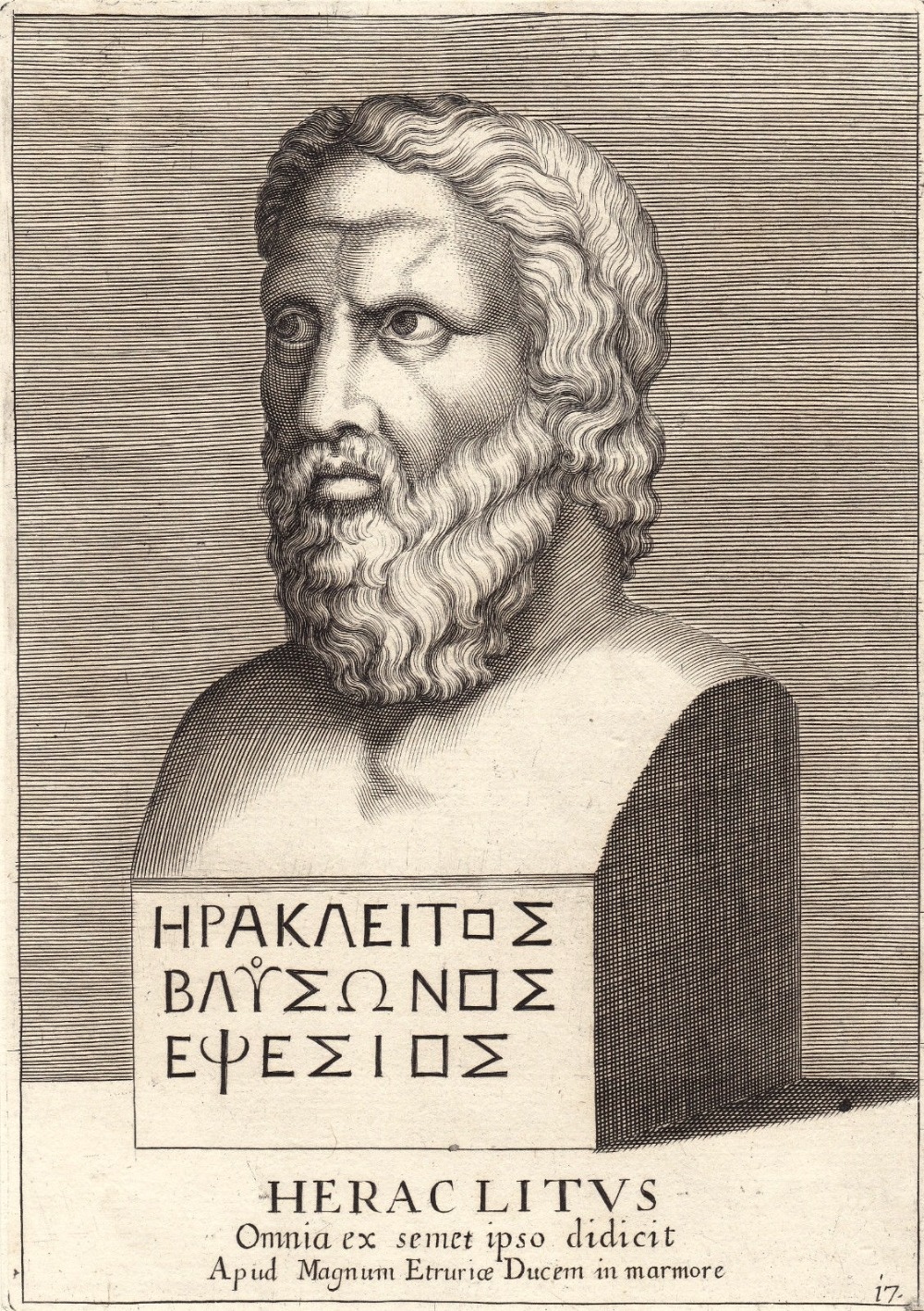
Heraclitus of Ephesus (/?h?r??kla?t?s/; Greek: ?????????? Herákleitos, "Glory of Hera"; fl.?c.?500 BCE) was an ancient Greek pre-Socratic philosopher from the city of Ephesus, which was then part of the Persian Empire.
Little is known of Heraclitus's life. He wrote a single work, only fragments of which have survived. Most of the ancient stories about him are later fabrications based on interpretations of the preserved fragments. His paradoxical philosophy and appreciation for wordplay and cryptic utterances has earned him the epithet "the obscure" since antiquity. He was considered a misanthrope who was subject to melancholia. Consequently, he became known as "the weeping philosopher" in contrast to the ancient philosopher Democritus, who was known as "the laughing philosopher".
The central idea of Heraclitus' philosophy is the unity of opposites. One of his most notable applications of this idea was to the concept of impermanence; he saw the world as constantly in flux, changing as it remained the same, which he expressed in the saying, "No man ever steps in the same river twice." This changing aspect of his philosophy is contrasted with that of the ancient philosopher Parmenides, who believed in "being" and in the static nature of the universe. https://en.wikipedia.org/wiki/Heraclitus
"Awakened people have only one world, but every sleeping person has his own world."
"Eyes and ears are poor witnesses for people if they have uneducated souls."
"Thought is a sacred disease, and sight is deceptive."
"The abundance of knowledge does not teach people to be wise."
"Everyone has the opportunity to be wise, but his contemporaries live as if they were sleeping."
"Dogs bark at things they don't understand."
"All human laws are nourished by divine law..."
"It is not right to hide your ignorance, but to reveal it and correct it."
"Life has the name of life, but it is really death."
"Those who love wisdom must investigate many things."
"Every person is given the ability to know himself and meditate wisely."
"Philosophers need to be aware of many things."
"You will not find the boundaries of the soul and will not even go through all the roads; such is its depth."
"It is advisable to listen to the Logos, and not to me, and to recognize that all things are one."
"Wisdom is the goal of the human soul, and as it advances in its knowledge, it in turn pushes back the horizon of the unknown."
"How can you hide from something that never goes away??"
"In change we find purpose."
"Allow yourself to think only about those thoughts that relate to your principles and bring with them the light of day."
"The most beautiful harmonies are born from differences."
"All things flow, and this flow is subject to a unifying current or rational principle."
"Logos, harmony hidden behind all changes."
"The content of your character is your choice."
"Day by day, what you choose, what you think and what you do is what you become."
— Heraclitus
Schauberger
individualities and while similarities occur, identicalities never do. This fact alone suffices to show that any rigid conformity to law or dogma-derived process is just as impossible as an identically formed product, for the form and type of the product of synthesis is determined by a process of constantly changing change. It was Heraclitus, who long ago stated that one cannot bathe in the same water twice, because it is in continual motion even when apparently still, and is thus in a constant state of metamorphosis. [The Energy Evolution - Harnessing Free Energy from Nature, The Liquefaction of Coal by Means of Cold Flows]
